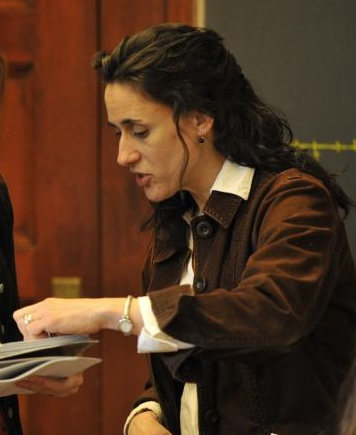I have been a part of writing curriculum with PBL since 1996. It has become part of a regular summer routine for me to write new problems and edit old ones from the previous year with input from students and experiences from the
 classroom I work with at the time. Below is a table of different iterations of the curriculum that I have been a part of writing that began with the Phillips Exeter Academy Math 2 (and Math 3) materials with you can find at their website.
classroom I work with at the time. Below is a table of different iterations of the curriculum that I have been a part of writing that began with the Phillips Exeter Academy Math 2 (and Math 3) materials with you can find at their website.
Avenues Integrated Math 1 2020-21
This is an edited version of the Phillips Exeter Academy Math 1 Problem Book. Know that this may contain typos or problems that we have edited throughout the school year 2019-2020.
2020-21 Avenues Integrated Math 2
Click here for PBL Curriculum used while at Deerfield Academy
Math 202 Deerfield Problem Book for Geometry (Middle Level)
Deerfield Math 202 (Geometry) 2017-2018
Edits and Errata 2017 2018
Also, Math 201 Deerfield Problem Book for Geometry (Lower level)
Deerfield Math 201 2017-2018From 2016-2017
Math202 Deerfield Problem Book for Geometry
MAT202 Problem Book 2016-2017
Math202 Deerfield Problem Book for Geometry (Middle Level)
MAT202 Problem Book 2015-16
MAT202 Deerfield GeoGebra Book Supplement for Problem Book
Errata and changes for 2015-16 202 (from 2014-2015 book)
| Deerfield Problem Book for Honors Geometry 2014 | MAT203 Problem Book 1415 |
| Deerfield Problem Book for Geometry (Middle Level) 2014 | MAT202 Problem Book 2014 |
| Deerfield Problem Book for Geometry (First Level) 2014 | MAT201 Problem Book 2014 |
| Deerfield Problem Book for Honors Geometry 2013 | Honors Geometry Problem book 2013 |
| Deerfield Problem Book for Geometry 2013 | MAT202 Problem Book 2013 (Pilot Year) |
| Emma Willard School Book for Algebraic Geometry | M225 2010 |
| Emma Willard School Book for Algebra II/Trig | 325 Materials 2011 |
The Deerfield book links in this table are for the books used in our geometry curriculum which has three levels. I created an online GeoGebra book to supplement the 202 book so that all of the GeoGebra files would be in one place and I will most likely be adding to it throughout the year. I would love to hear feedback from anyone who uses or reads through the books. We have no editors! If you would like more information about the differences in the materials, please contact me.
I’ve used the 201 book for two years now and it has been accepted very well by the students in the tracking group (not my choice). In 201, I am going to try to motivate these students with more creative thinking and allow them to do more fun problem solving while at the same time doing regular algebra practice that will most likely not be the 201 book. We will have iPads and I will be doing work with Socrative quizzes for a few minutes twice a week. If you have questions about that please let me know. Topics that are not in 201 include:
- written proof (we do argument)
- the algebraic finding of centroid, circumcenter, and other special points in triangles, they do learn the concepts and important theorems
- Problems for inscribed angles of circles are asterisked and sometimes are left out at the end of the year.
- ratios of similar solids
The other links are of curricula that I adapted from the PEA materials with the Emma Willard School Mathematics Faculty and we implemented from 2006-2011. This curriculum was used for their Math 225 course which was called Algebraic Geometry and was based on the wonderful work of the faculty at Phillips Exeter Academy. Many of the problems are from their curriculum, but a great deal of the problems in the book are our own creation, including all of the GeoGebra labs.
I am also including a link to the Math 325 Materials. This is part of the Algebra 2/Trigonometry course which is supplemented at Emma Willard. I give the caveat that although I helped adapt the Exeter Materials for this course, I did not actually teach this course with these materials, but I will teach my Honors Algebra 2 course at Deerfield using them to supplement the text in the fall.
If you don’t foresee being able to wholeheartedly switch to a PBL curriculum like myself, you might be interested in using the sets of motivational problems that I have that are still scaffolded and purposeful, but are topic-based and allow you to move at the pace of other colleagues who are using a textbook in a more contextualized (traditional) way. Those problem sets are at another page for your perusal.
As always, I welcome a discussion of any issues you see. Thank you so much for your input.